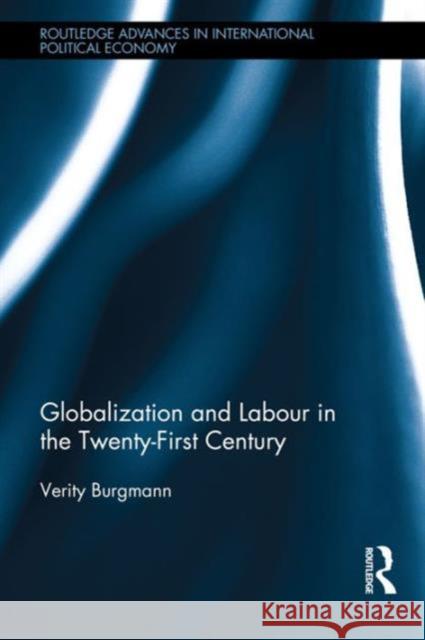Globalization and Labour in the Twenty-First Century » książka
Globalization and Labour in the Twenty-First Century
ISBN-13: 9780415528535 / Angielski / Twarda / 2016 / 262 str.
Globalization and Labour in the Twenty-First Century
ISBN-13: 9780415528535 / Angielski / Twarda / 2016 / 262 str.
(netto: 720,05 VAT: 5%)
Najniższa cena z 30 dni: 654,86
ok. 16-18 dni roboczych.
Darmowa dostawa!
Globalization has adversely affected working-class organization and mobilization; but international labour movement demobilization is not necessarily an irreversible trend. Globalization has prompted workers and their organizations to find new ways to mobilise.
This book examines international working-class opposition to globalization. It chronicles and critically scrutinizes the emergence of distinctively new forms of labour movement organization and mobilization that constitute creative initiatives on the part of labour. Workers have developed new ways to confront employer power particularly appropriate to the circumstances imposed by globalization, which present capitalism with fresh challenges. The author identifies eight characteristics of globalization that have proven problematic to workers and their organizations and describes and analyzes how they have responded to these challenges since 1990 and especially in the past decade. In particular, it focuses attention on new types of labour movement organization and mobilization that are not simply defensive reactions but are offensive and innovative responses that compel corporations to modify their behaviour. Different union forms and methods are materializing. Aging and less agile manifestations of the labour movement decline while new expressions of working-class organization and mobilization emerge to better battle with capitalist globalization.
This book will be of interest to students and scholars of globalization, political economy, labour politics, economics, Marxism and sociology of work.











